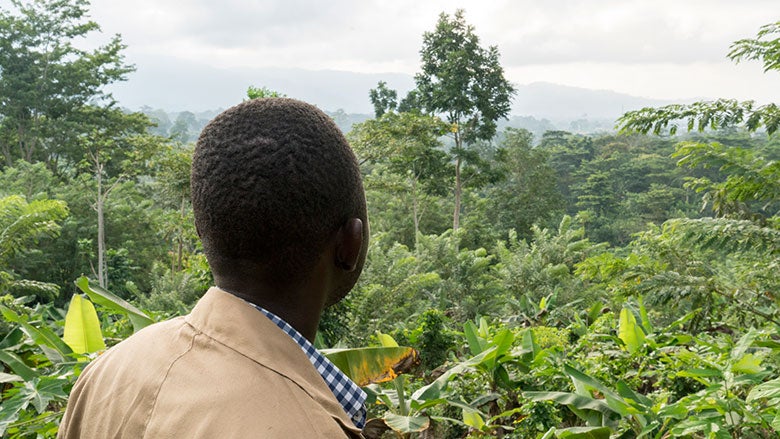
For five years now, the global community has been observing the International Day of Forests on March 21. It is an occasion to celebrate the wide range of economic and social benefits that forests and trees bring to humankind. Since joining the World Cocoa Foundation (WCF) as its president in July 2016, I have been paying lots of attention to forests in West Africa, which is the world’s leading source of cocoa. These tropical forests, and others like them around the world, play an indispensable role in fighting global climate change by storing carbon. They also meet vital local needs, by cooling temperatures, helping generate rainfall, and purifying the air and water. Healthy forests help rural communities thrive. The paradox is that, over the last 10 years, life-giving forests in Côte d’Ivoire and Ghana were felled at an alarming rate as cocoa farmers, faced with challenges such as low prices, climate change, and low productivity, have expanded the land area on which they grow cocoa. The crop, essential for the chocolate and cocoa products that many of us love, is now seen as a major driver of deforestation in these countries.
So, how do we make our global sweet obsession deforestation-free? The cocoa and chocolate industry has joined with the governments of Côte d’Ivoire and Ghana, along with development partners such as the World Bank, civil society organizations, farmer groups and others, to find lasting solutions that take into account both environmental concerns and the livelihoods of cocoa farmers. Our effort is called the Cocoa & Forests Initiative.
The Cocoa & Forests Initiative journey began in March 2017, at an event in London hosted by HRH the Prince of Wales. The meeting put into motion a process that accelerated the development of Frameworks for Action, signed at the UN Climate Conference in Bonn in November 2017. The Frameworks contain specific commitments by the governments of Côte d’Ivoire and Ghana and more than two dozen chocolate and cocoa supply chain companies to address deforestation and forest degradation.
In early 2018, I attended a Cocoa & Forests Initiative workshop in Abidjan, Côte d’Ivoire, that was convened by Alain-Richard Donwahi, the country’s Minister of Waters and Forests, and other high-ranking government officials. We made significant progress toward implementation of the Frameworks in Côte d’Ivoire’s cocoa-growing regions.
In Ghana, Deputy Minister of Lands and Natural Resources Benito Owuso-Bio recently introduced Climate Smart Cocoa Production, an initiative encouraging farmers to plant improved seeds and increase the number of forest trees living alongside cocoa on farms. He also signaled his support for actions to eliminate illegal trade of wood and mining activities, both critically important issues in the fight to end deforestation in West Africa.
In fewer than 12 months, the Cocoa & Forests Initiative has been the catalyst for agreements between the governments of the world’s top two cocoa-producing countries, leading chocolate and cocoa supply chain companies, and civil society organizations. None of this was easy and the issues that formed the focus of our work are often enormously complicated. Nevertheless, we established mutual trust and embraced the key principle of shared responsibility for past actions and future solutions. The recent meetings in Abidjan and Accra mark the beginning of a new and even more difficult phase: mapping out the timeline, accountabilities, and next steps for implementation.
The chocolate and cocoa industry has committed to eight critical principles:
- Prohibit and prevent activities in the cocoa sector that cause or contribute to any further deforestation or forest degradation in protected areas;
- Respect the rights of cocoa farmers, including identifying and mitigating social risks, and sequencing the implementation of actions to minimize potential adverse social and economic impacts;
- Promote the effective restoration and long-term conservation of National Parks and Forests Reserves;
- Strengthen supply chain mapping, with the end goal of full traceability at the farm-level;
- Implement verifiable actions and timebound targets on the basis of good maps, sound data, robust analysis, stakeholder consultation, and realistic timeframes;
- Implement agreed actions in the context of a broader landscape-level approach, with strong links with similar initiatives in other commodities, and full alignment with the national REDD+ strategy and other relevant national strategies and plans;
- Work closely with the Government, and other partners, to implement the Framework for Action, and we will help mobilize the necessary financing, resources and technical support for implementation;
- Provide effective monitoring and reporting on progress on commitments and actions to ensure transparency and accountability.


Join the Conversation